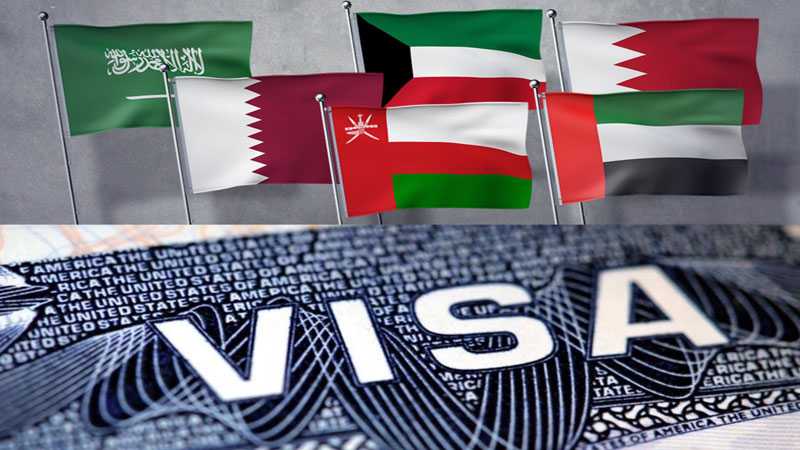In 2025, international travel and migration policies are evolving faster than ever, especially across the Gulf region. With millions of workers, tourists, students, and entrepreneurs heading to the Gulf countries every year, staying updated on visa regulations is not just helpful—it’s essential. From stricter entry protocols to more streamlined visa systems, several Gulf nations have introduced major updates that could impact your next move.
Whether you’re planning to work in Dubai, attend a business meeting in Riyadh, or explore the markets of Doha, this guide highlights the latest Gulf country visa updates in 2025 that you need to know. We’ll break down the most important changes by category and give you a clear picture of how they affect travel and residency across the region.
1. UAE Introduces 5-Year Multiple Entry Visa for Professionals
One of the most significant Gulf country visa updates in 2025 comes from the United Arab Emirates. The UAE has expanded its multiple-entry visa program, allowing professionals, freelancers, and business travelers to apply for a 5-year visa with flexible stay limits.
This visa is particularly attractive for individuals who frequently travel in and out of the country for work or events. It does not require employer sponsorship, making it ideal for freelancers and consultants.
Who benefits:
- Digital nomads
- Freelancers
- Entrepreneurs
- Frequent business travelers
2. Saudi Arabia Streamlines Work Visa Process for Expat Workers
Saudi Arabia continues its transformation journey under Vision 2030, and part of that includes easing the process for foreign workers. In 2025, the country has reduced the processing time for work visas to as little as 5 business days.
Additionally, workers can now switch employers without needing to exit the country, provided they meet contract terms and the employer is registered with the Ministry of Human Resources.
Key takeaway: Skilled workers in healthcare, IT, and construction are in high demand, and this new system allows smoother transitions for expats already inside the Kingdom.
3. Qatar Expands E-Visa Access for 30+ New Countries
Qatar is one of the most travel-friendly Gulf countries in 2025, especially after its success in hosting international sporting events. The country has now expanded its e-visa eligibility to over 30 new countries, primarily in Africa and Southeast Asia.
Tourists and business travelers can now apply online, reducing wait times and paperwork. This move supports Qatar’s goal to attract more international visitors throughout the year.
4. Oman Introduces Long-Term Resident Visa for Investors
Oman has rolled out a new residency program aimed at high-net-worth individuals and foreign investors. Under the 2025 program, applicants who invest in Omani businesses or real estate may receive a renewable 10-year residency visa.
This is part of Oman’s economic diversification strategy and positions the country as an attractive destination for international business.
Investor-friendly features include:
- No personal income tax
- Strategic location with port access
- High-growth sectors in tourism and logistics
5. Bahrain Eases Visa Rules for Remote Workers
Remote work is no longer a trend—it’s a lifestyle. Recognizing this, Bahrain has introduced a special digital nomad visa that allows remote workers to live and work from the Kingdom for up to 12 months, with renewal options.
Applicants must show proof of income and remote employment, but do not need to be tied to a local employer. This aligns with Bahrain’s efforts to grow its digital economy and appeal to a younger, mobile demographic.
6. Kuwait Adds Biometric Verification for All Visa Applicants
Security remains a top concern for Gulf governments. In 2025, Kuwait has made biometric verification mandatory for all new visa applicants. This includes fingerprinting and facial scans at consulates or upon arrival.
While this step may add a small layer of formality to the application process, it ensures more secure borders and faster re-entry for previous visitors. Tourists and business travelers are advised to complete biometric registration well ahead of their travel dates.
7. Visa Fees Adjusted Across Gulf Nations
Alongside process updates, 2025 has seen revised visa fee structures across most Gulf countries. The adjustments vary by visa type, with some becoming more affordable and others seeing slight increases.
Examples:
- UAE has reduced tourist visa extension fees by 20%
- Saudi Arabia introduced bundled visa packages for seasonal workers
- Oman offers discounted fees for students and academic researchers
It’s important for travelers to check the latest costs before applying to avoid last-minute surprises.
8. Family Reunification Made Easier in Several Countries
In a welcome move, countries like the UAE, Saudi Arabia, and Bahrain have simplified the process for sponsoring family members. New policies allow residents to sponsor spouses, children, and even parents under more relaxed income and housing requirements.
This change supports the growing number of skilled expats seeking to bring their families and settle long-term. It also highlights how Gulf nations are slowly shifting from short-term labor markets to more sustainable population policies.
9. Seasonal Work Visas Expanded in Agriculture and Hospitality
With a surge in regional tourism and increased food production goals, Gulf countries are issuing more seasonal visas in sectors like agriculture, hospitality, and event management.
Temporary workers from South Asia, North Africa, and Eastern Europe can benefit from these expanded opportunities. Many seasonal visa programs also come with health benefits, fair wage guarantees, and accommodation.
For job seekers watching Gulf country visa updates, this is a promising development that opens new short-term work avenues.
10. Travel Culture and Fashion Evolving Alongside Visas
While these visa changes dominate headlines, another aspect of Gulf travel is quietly making waves: fashion. As more influencers and content creators travel across Gulf cities, trending outfits inspired by local culture—modest wear, contemporary abayas, and high-end resort wear—are gaining attention.
The ability to travel more freely through new visa programs means travelers are not only exploring landscapes but also embracing regional aesthetics. This cultural exchange is enriching travel experiences and influencing style trends globally.
Final Thoughts
The Gulf country visa updates in 2025 reflect a region in transformation. Whether it’s digital convenience, economic diversification, or workforce innovation, Gulf nations are making it easier for people to visit, work, and even settle. These changes aren’t just about visas—they’re about opening doors, literally and figuratively.
For travelers, job seekers, students, investors, or digital nomads, the time to explore opportunities in the Gulf has never been better. But with policies evolving quickly, staying informed is key.
From new visa types to trending outfits, the Gulf is redefining its image in 2025—welcoming, future-focused, and open for the world.






